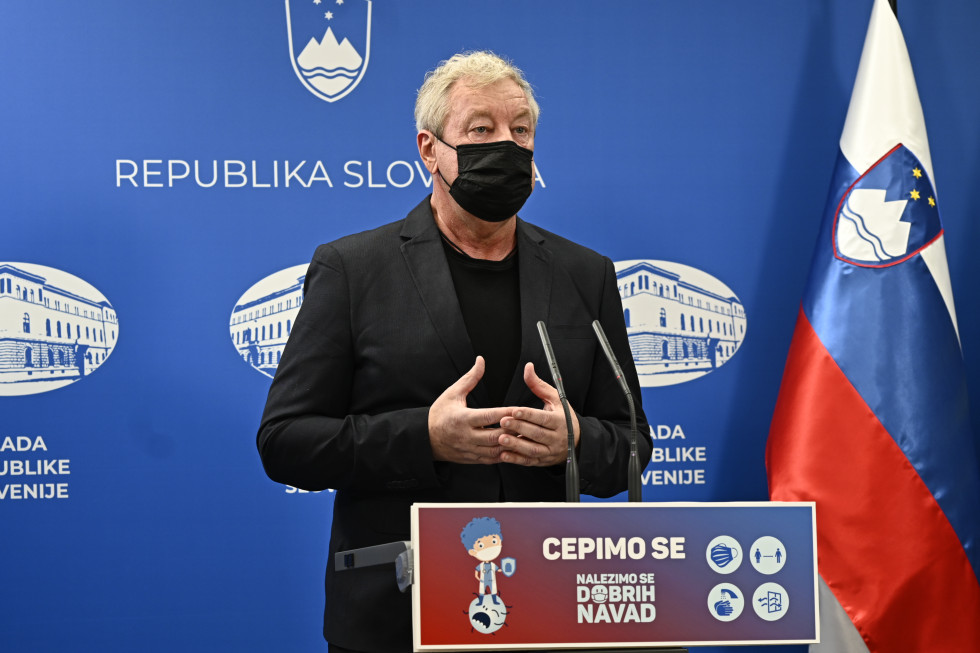Prof. Dr Borut Štrukelj from the Faculty of Pharmacy in Ljubljana was one of the speakers at the press conference on COVID-19 held yesterday.
The day before yesterday a total of 1,526 new cases were confirmed, which is 324 fewer than were confirmed a week ago. There are currently 804 COVID patients being treated in hospitals, 231 of them in intensive care units. A further 8 people have died.
Maja Bratuša began by saying that the National Institute of Public Health vaccination advisory group has already included the vaccination of children aged between 5 and 11 in its vaccination recommendations, and vaccination centres are starting to vaccinate this demographic this week. Parents or guardians can register their children for vaccination in three ways: at selected pediatricians, at vaccination centres or via the zVem portal.
Borut Štrukelj presented data on the molecular development of the new Omicron variant and talked about medicines and vaccines. He said that it appears that the Omicron variant evolved independently of other variants and was already present in March. It is also highly contagious, but could be less symptomatic, which means that the disease would be easier to recover from. As Štrukelj points out, new mutations may still be emerging and this variant could also become very dangerous. However, he hopes that it will eventually subside.
Štrukelj explained that it is not yet clear how effective the current vaccines are against Omicron, but several studies have shown that a third booster dose is very effective also against this variant. He went on to say that four vaccines are in the approval phase at the European Medicines Agency (EMA): Novavax, Valneva, Sinofarm and Sinovac. Some of them are expected to be available early next year.
Štrukelj also spoke about who the available medicines are aimed at. As he explains, Molnupiravir and Paxlovid do not prevent infection, but rather a more severe course of the disease. Passive immunisation drugs and corticosteroids are also available.


